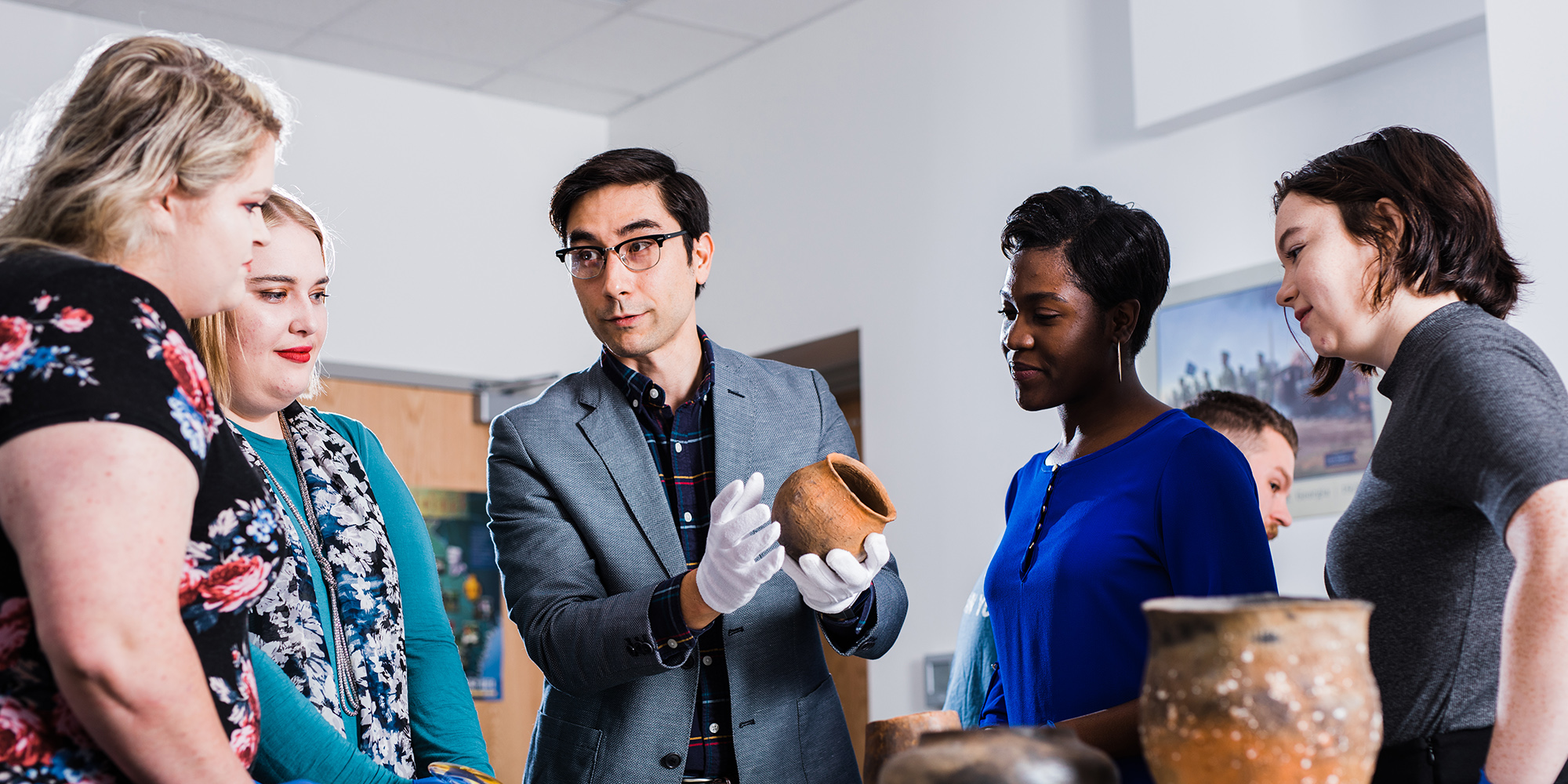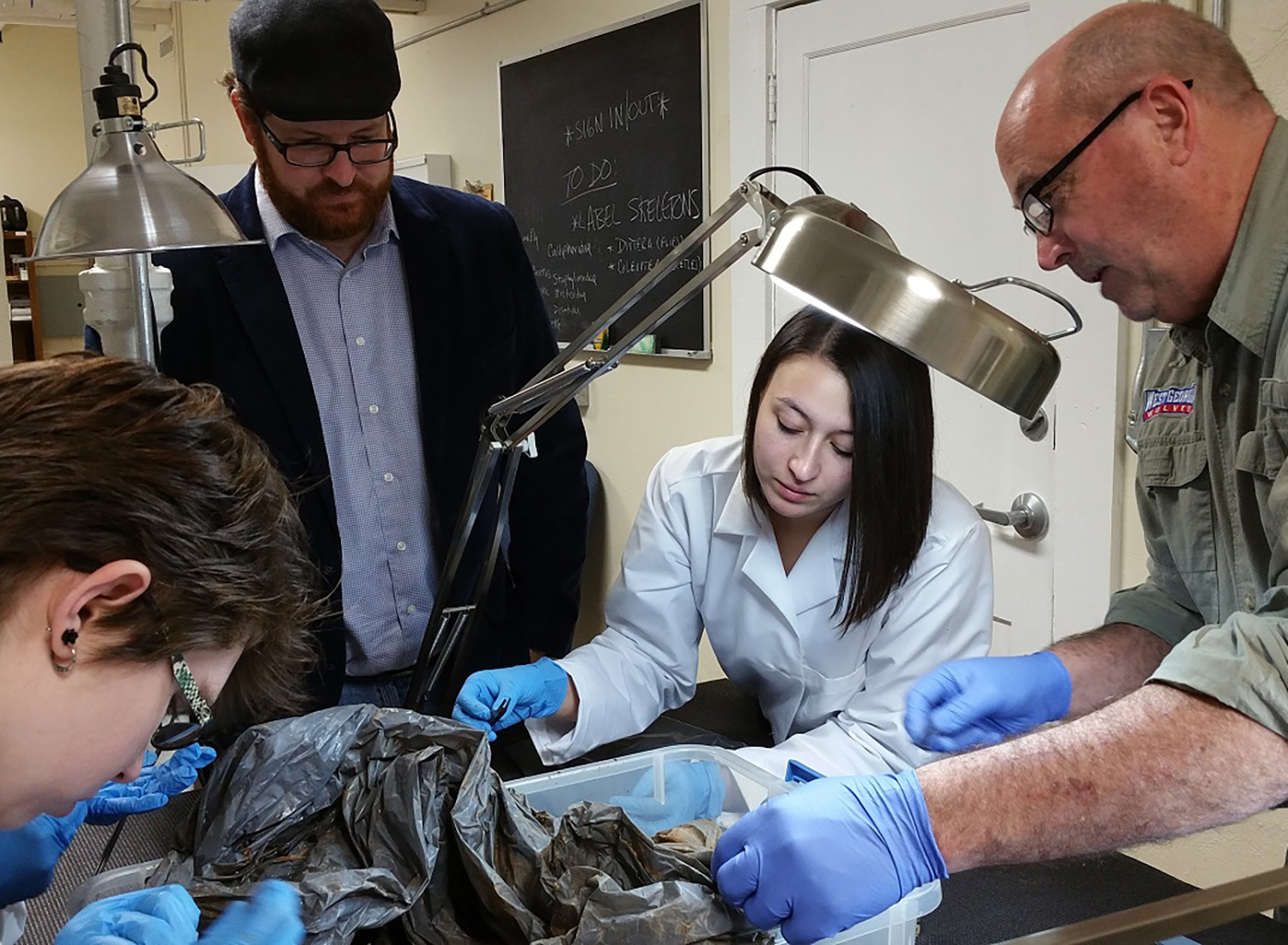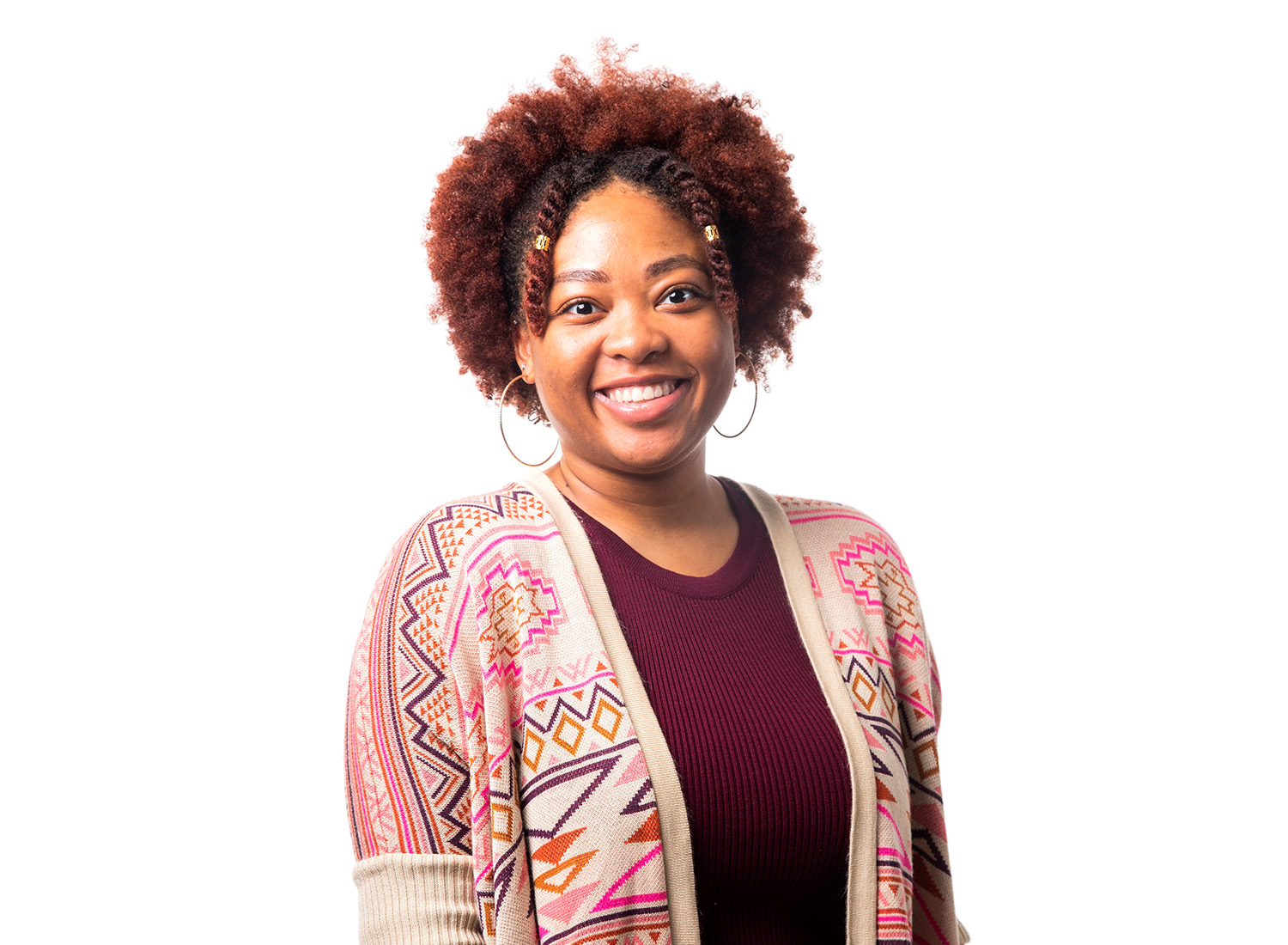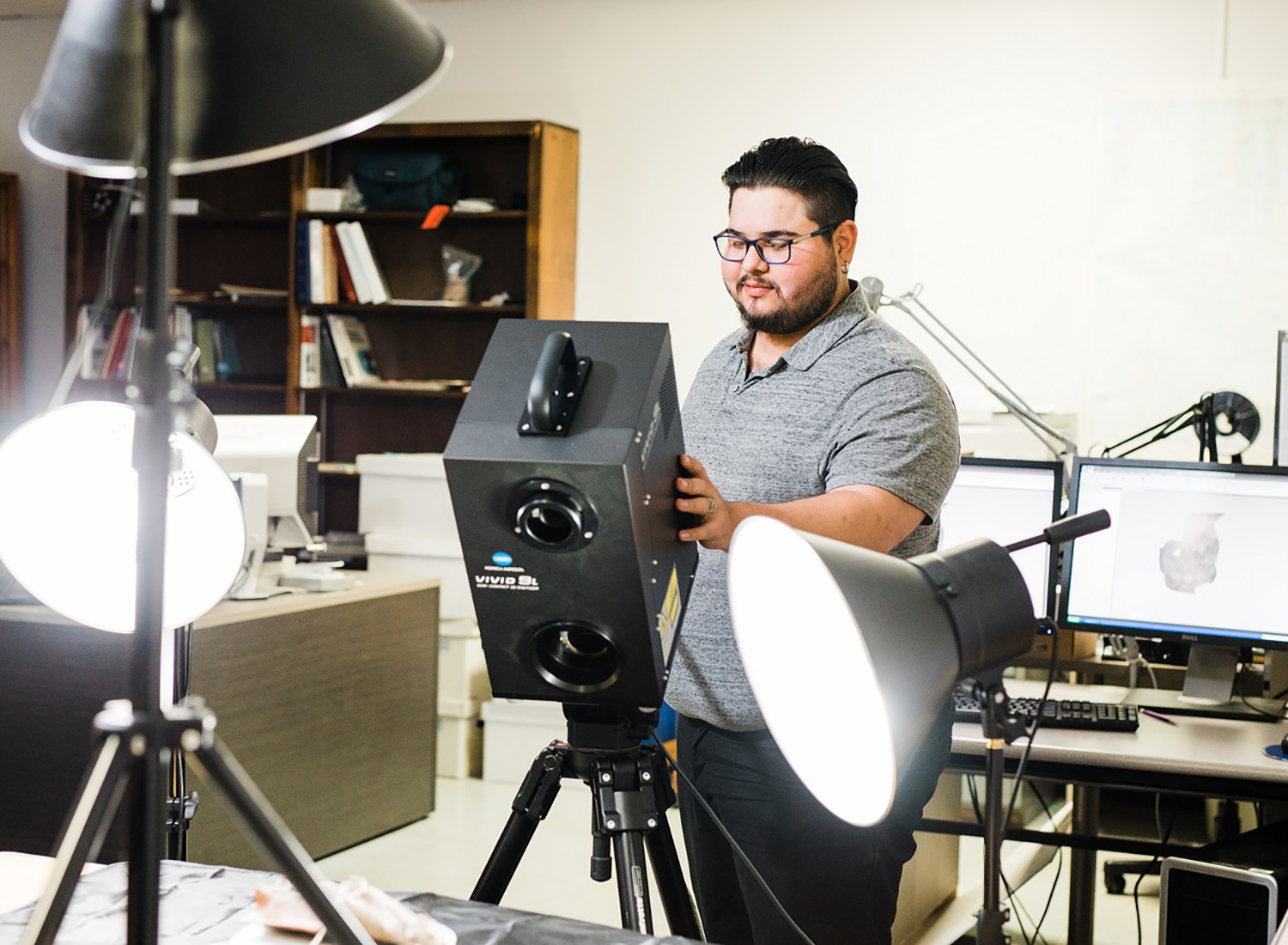Anthropology

View the World Through a Wider Lens
Study what it means to be human.
Analyze the three “Bs” of Homo sapiens: Biology, Behavior, and Belief. Engage with humans across time and space. Learn about their unique evolution and diversity – from prehistory to the present – through the subfields of archaeology, biological anthropology, cultural anthropology, and anthropological linguistics. Explore our degrees and begin your journey to a rewarding future.
Degrees
Scholarships
scholarships
Anthropology offers a wide range of scholarships specifically for incoming admitted freshmen and continuing art students. Learn what scholarships are available and how to apply.
visit us
UWG Admissions hosts events throughout the year, such as academic showcase and scholarship day, for interested students to visit campus and learn more about our degree options and scholarship opportunities.
Questions? Contact: anthropology@westga.edu
Exceptional Facilities

Exceptional Facilities
The Anthropology Program makes use of two exceptional laboratories, the Antonio J. Waring, Jr. Center for Public Archaeology and the Biological and Forensic Anthropology Laboratory (BAFAL). Thousands of prehistoric and historic archaeological collections are held in trust by the Waring lab, and provides students with hands-on experiential training in archaeological and curatorial methods. BAFAL is an open lab space where students and faculty alike can conduct research and participate in experiential learning opportunities related to biological and forensic anthropology.
Successful Students, Supportive FacultySuccessful Students, Supportive Faculty

Successful Students, Supportive Faculty
“One of the highlights of my experience in Anthropology at UWG would be the in-depth mentoring that I have received ... making me realize the importance of Anthropology in our world as well as my personal life.”
-Jawonna Coleman, Waring Distinguished Scholar

